Episodes
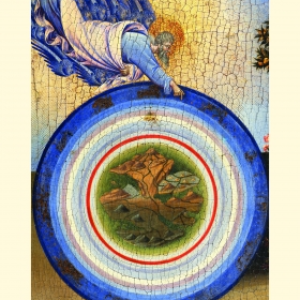
Friday Jun 30, 2023
Ep 147 - Daniel Shields on Nature and Nature’s God
Friday Jun 30, 2023
Friday Jun 30, 2023
Paul felt it was important to put Daniel's book title in the episode title, but Bill's suggested title is too good not to place somewhere:
TSSM: NEW BOOK EXPLORES MEANING IN MOTION
- In this new episode of the “That’s So Second Millennium” podcast, your host Paul Giesting, assistant professor of mathematics and sciences at Wyoming Catholic College, interviews his faculty colleague, Dr. Daniel Shields, assistant professor of philosophy. Shields’s book, Nature and Nature’s God: A Philosophical and Scientific Defense of Aquinas’s Unmoved Mover Argument, has just been released by Catholic University of America Press and is available for purchase here.
- This discussion is tailor-made for these two Catholic scholars who bring broad scientific and philosophical knowledge, plus fervor for conversations at the intersection of multiple disciplines, to their research and teaching. It is also tailor-made for the “TSSM” podcast, which seizes this golden opportunity for a curtain-call while remaining on official hiatus. The podcast generated about 150 episodes between 2018 and 2022, with co-host Bill Schmitt. They focused on the intersection, incorporating everyday life and the pursuit of virtuous wisdom—past, present, and future.
- Shields makes reference to Dr. Robert C. Koons, professor of philosophy at the University of Texas at Austin. Koons wrote a review of Nature and Nature’s God, praising its integration of natural philosophy and metaphysics. The book combines scientific knowledge with insights into the writing of St. Thomas Aquinas.
- Shields and Giesting go into depth on Aquinas’s proofs for the existence of God, especially his favored “first way”—arguing our cosmos filled with motion needs an “unmoved mover” at its origin (and beyond). The discussion elaborates on the idea that God keeps everything in motion.
- The book, Shields explains, goes on to apply natural philosophy and metaphysics to such subjects as statistical mechanics, contemporary cosmology, and even biology.
- Through it all, Shields and Giesting make mention of many historical figures, from Aristotle to Copernicus to Newton to Maimonidesto Helmholtz. Present-day references include Brother Guy Consolmagno, SJ, known as the Pope’s Astronomer, and quantum physics scholar Sean Carroll.
Sunday Aug 08, 2021
Bonus Episode - WOFI Faith & Science Summit
Sunday Aug 08, 2021
Sunday Aug 08, 2021
Word on Fire will be holding a Faith and Science Summit August 9-12 (starting tomorrow!). It will feature at least nine speakers, including the SCS' own Jonathan Lunine and Karin Oberg.
Among the topics discussed will be
- The history of the Church and science, including a wealth of details that get glossed over by the "conflict hypothesis"
- Specific coverage of what went wrong between the Pope, cardinals, and Galileo, and why that's far from a typical example of how the Church treats scientists
- The counterexample of George LeMaitre
- Theological motivations *for* doing science from the perspective of the Christian faith
- Insights from science that have enriched our appreciation of creation, the physical universe, and our own human origins
- Catholic theology and speculation about the possibility of extraterrestrial life
Find out more at:
https://wordonfire.institute/faith-and-science-summit
If you're a Word on Fire Institute member:
https://wordonfire.institute/faith-and-science-summit-wofimembers
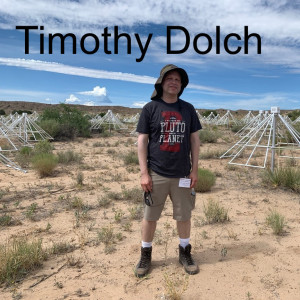
Monday Jun 28, 2021
Episode 128 - Radio Astronomer Signals Wonderment of ET Life
Monday Jun 28, 2021
Monday Jun 28, 2021
- Paul and Bill interviewed Timothy Dolch, Ph.D., assistant professor of physics at Hillsdale College. Dr. Dolch is a member of the Society of Catholic Scientists, and he spoke in June at the Society’s 2021 conference, titled, “Extraterrestrials, AI, and Minds Beyond the Human.”
- His talk, “The Search for Extraterrestrial Intelligence: An Overview,” offered his perspectives as an astrophysicist with expertise in radio astronomy. The talk, alongside others from the conference’s Saturday session, can be viewed here.
- Here are some links to terms used during the conversation. What is a parsec? What are the transient luminous events known as red sprites and blue jets? What is the Low-Frequency All-Sky Monitor operated at Hillsdale? What are SETI and the Arecibo Message? What is the Square Kilometer Array telescope now being built?
- As Dr. Dolch mentioned, part of the discussion at the conference dealt with differing expectations about the process of evolution as it might happen in extraterrestrial life. He referred to another speaker, Simon Conway Morris, Ph.D., an earth scientist studying evolution at the University of Cambridge.
- Dolch mentioned Solaris, a science fiction novel later made into a film. You can view the film here. This classic work imagines an alternative kind of conscious extraterrestrial life form—other than what human beings might call a person.
Our discussion with Dr. Dolch about the Hillsdale community included a mention of the college’s Center for Constructive Alternatives.
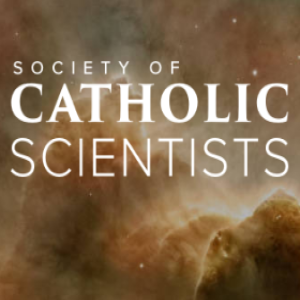
Tuesday Jun 08, 2021
Episode 127 - SCS Meeting 2021
Tuesday Jun 08, 2021
Tuesday Jun 08, 2021
Paul and Bill provide an on the scene review of the Society of Catholic Scientists Conference 2021 at the Washington, D.C. Hilton. The themes were Extraterrestrial Life, Artificial Intelligence, and Minds beyond the Human.
As an added service, here are some links provided by the after dinner speaker, Jennifer Wiseman, to works and groups dedicated to faith - science dialogue:
Book: "The Book of the Cosmos: Imagining the Universe from Heraclitus to
Hawking" (Editor Prof. Dennis Danielson, UBC; Perseus, 2000)
Book: "The Language of God", by Francis Collins (Director of the U.S. Human Genome
Project; Free Press, 2006)
Organizations and Websites:
Society of Catholic Scientists! catholicscientists.org
Dialogue on Science, ethics, and Religion (DOSER), American Association for the
Advancement of Science: aaas.org/doser
sciencereligiondialogue.org
Sinai and Synapses: sinaiandsynapses.org
American Scientific Amilation (ASA) asa3.org
(network of scientists, engineers, teachers, and science enthusiasts Interested in
the relationship of science and Christian faith)
Biologos.org
Science for the Church: scienceforthechurch.org
Scientists in Congregations: scientistsincongregations.org
Faraday Institute for Science and Religion: www.faraday.cam.ac.uk
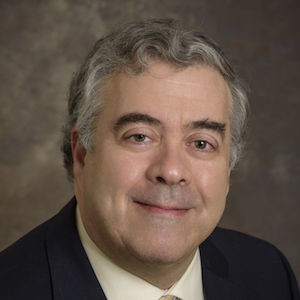
Monday May 31, 2021
Episode 126 - Society of Catholic Sciences Preview with Stephen Barr
Monday May 31, 2021
Monday May 31, 2021
- Paul and Bill welcomed Stephen Barr, Ph.D., president of the Society of Catholic Scientists (SCS), for a return visit to TSSM. Dr. Barr, a theoretical particle physicist, is emeritus professor in the Department of Physics and Astronomy at the University of Delaware. We talked with him about the Society of Catholic Scientists and the organization’s fourth annual conference, scheduled June 4-6, 2021, in Washington, DC.
- The growing membership of SCS now totals about 1,500 in multiple countries. The organization was founded in 2016 by Dr. Barr and five other scientists. Barr, author of Modern Physics and Ancient Faith, described the upcoming conference, which is titled “Extraterrestrials, AI, and Minds Beyond the Human.” See details of the conference The SCS has posted an announcement about live-streaming of conference talks for those who have not registered to attend in-person.
- The talks will be livestreamed at https://catholicscientists.org/conference2021. The schedule of talks can be found HERE. During the talks, questions for the speakers can be emailed in to questionsSCS2021@gmail.com. As time permits, some questions will be selected from those emailed in and posed to the speakers during the Q&A sessions.
- Barr gave an overview of the event and the speakers.
- One of the speakers, Prof. Lawrence Principe, Ph.D., will also be the recipient of the Society’s Saint Albert Award. The award, bestowed annually, is named for St. Albert the Great, patron saint of the natural sciences. Dr. Principe, a historian of science at Johns Hopkins University, has been a leading voice in dispelling the myth of a historical conflict between science and religion, Dr. Barr pointed out. A course titled “Science and Religion” is offered by Principe through the “Great Courses” organization and is available online.
- The conference’s keynote speaker is Christopher Baglow, Ph.D., director of the Science & Religion Initiative in the McGrath Institute for Church Life at the University of Notre Dame. Dr. Baglow, whose unique high school textbook Faith, Science, and Reason: Theology on the Cutting Edge has now been published in a second edition, was a guest on a previous episode of the TSSM podcast.
- Barr pointed out that, although the Society did not hold a conference in 2020, it greatly expanded its website, which now includes instructional materials about science and religion. One feature is a curated historical collection of concise bibliographies about important scientists who were practicing Catholics. Barr thanked his collaborator Andrew Kassebaum for that content, which is more authoritative than other online lists of “Catholic scientists.”
- The SCS continues to work to expand its services to teachers and students. The SCS website, at org, already contains numerous videos of talks from past conferences. Dr. Barr said the Society’s goals include facilitating wide-ranging intellectual and spiritual fellowship for Catholic scientists and helping to evangelize a secular culture that is infused with thoughts and messages prioritizing science and technology. The work of spreading the faith through science will increasingly use new media.
- Another form of evangelization is the Society’s support for Church celebrations of “Gold Masses” in numerous localities in the United States and elsewhere. Gold Masses, often planned as Votive Masses in honor of St. Albert the Great, are celebrated for members of the science professions. The Masses are part of the effort to increase the Society’s grass-roots activities through local and campus chapters.
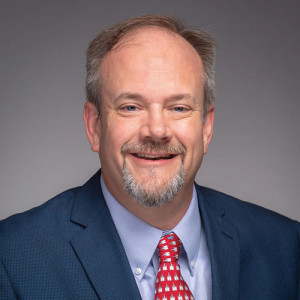
Tuesday May 11, 2021
Episode 125 - Chris Baglow and Jay Martin (rerun, full episode)
Tuesday May 11, 2021
Tuesday May 11, 2021
- Paul and Bill are proud to present this encore episode featuring the Science and Religion Initiative featuring the Science & Religion Initiative program conducted by the McGrath Institute for Church Life at the University of Notre Dame. In 2019, we interviewed Chris Baglow, Ph.D., director of the program, which equips Catholic high school educators with big-picture insights and detailed tools to communicate effectively regarding the complementarity of faith and reason, science and religion.
- We spoke with Prof. Baglow about topics covered in his recently published book, the second edition of Faith, Science, & Reason. He will be keynote speaker at the 2021 conference of the Society of Catholic Scientists, scheduled for June 4–6 in Washington, DC. Find information about the conference
- We also spoke with Jay Martin, Ph.D., a scholar in systematic theology who was the Science & Religion Initiative’s assistant director and is now Assistant Teaching Professor in Notre Dame’s Department of Theology.
- The initiative, with support from the Templeton Foundation, encourages a coordinated approach to educating young Catholics, helping them to avoid the trap of a focus on science as an exclusive source of truth and “real” knowledge. Such a focus can drive students away from the Catholic Church’s wisdom and values if it dismisses religious faith as meaningless—not worth serious engagement in their minds and hearts.
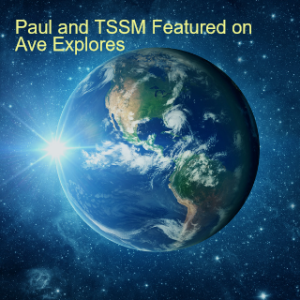
Friday Apr 30, 2021
Paul and TSSM Featured on Ave Explores
Friday Apr 30, 2021
Friday Apr 30, 2021
Paul had the privilege to be interviewed for the Ave Explores podcast series on faith and science. Check out the episode here:
https://www.avemariapress.com/aveexplores-faith-science/podcast-giesting
Thanks to Katie Prejean McGrady and Erin Pierce with Ave Maria Press for this unique opportunity!
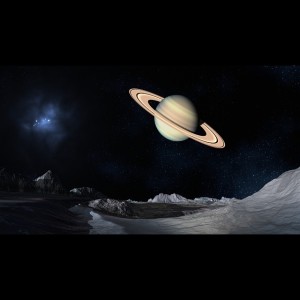
Monday Oct 28, 2019
Episode 083 - Astrobiology and the Search for Life with Jonathan Lunine
Monday Oct 28, 2019
Monday Oct 28, 2019
- Dr. Jonathan Lunine is the David C. Duncan Professor in the Physical Science and chair of the Department of Astronomy at Cornell University. He is also the vice president and a co-founder of the Society of Catholic Scientists.
- In this “part 5” of our interview, Dr. Lunine notes that planetary science was not always a distinct field. It drew upon components of astronomy or the geological study of the moon, for example. Astrobiology, with a goal of studying microbial life forms that may be found on exoplanets, is now at the point of relative infancy where planetary science stood about 50 years ago.
- Enceladus, one of the dozens of moons orbiting Saturn, is one site worth inspecting in the search for life. It could be based on carbon-bearing molecules different from those found in Earth life. The Cassini mission reported on plumes of water vapor and ice emanating from that moon. Dr. Lunine was part of a group proposing a mission called Enceladus Life Finder.
- Saturn’s moon Titan has seas filled with liquid methane. Could there be a form of biochemistry that works in liquid methane? It’s worth looking for, Dr. Lunine said.
- The Society of Catholic Scientists, with more than 1,000 members, is expanding its activities. The international group’s next annual meeting will consider the possibility of extraterrestrial life and the implications of such discoveries relevant to faith. The conference will be held in June 2020 at Providence College.
- Image by Reimund Bertrams from Pixabay

Monday Oct 21, 2019
Episode 082 - Extraterrestrial Life and Biosecurity with Jonathan Lunine
Monday Oct 21, 2019
Monday Oct 21, 2019
In this week's episode, we discuss the possibility of extraterrestrial life in our own solar system. Dr. Lunine talked about extraterrestrial life. It’s very possible that at least microbial life exists on other planets, he said, but the chances of complex, multicellular life are much more difficult to estimate.
We simply don't know what the possibilities are for life beyond the chemistry that it uses here on Earth. A potential tragedy that we would want to avoid at almost any cost would be the introduction of terrestrial microbes into a viable environment elsewhere, where they could become invasive species, grow and potentially outcompete the native life, which we would never get the chance to study and understand. NASA and other space agencies have policies in place to address this risk... hopefully, they will work.
Dr. Jonathan Lunine is the David C. Duncan Professor in the Physical Science and chair of the Department of Astronomy at Cornell University. He is also the vice president and a co-founder of the Society of Catholic Scientists.
Christianity and Extraterrestrials?: A Catholic Perspective , by Marie George, is a book worth reading, Dr. Lunine said.
He thanked all those who spoke at the 2019 conference of the Society of Catholic Scientists, and he commented on the high quality of the event. The website provides links to several TSSM episodes interviewing conference speakers.
Watch videos of speakers here.
Image by Reimund Bertrams from Pixabay
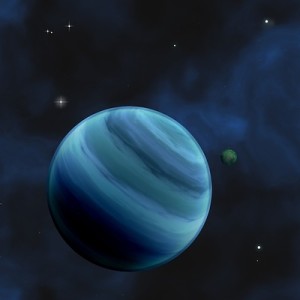
Monday Oct 14, 2019
Episode 081 - The Exoplanet Revolution with Jonathan Lunine
Monday Oct 14, 2019
Monday Oct 14, 2019
- Dr. Jonathan Lunine is the David C. Duncan Professor in the Physical Science and chair of the Department of Astronomy at Cornell University. He is also the vice president and a co-founder of the Society of Catholic Scientists.
- In this “part 3” of our interview, Dr. Lunine talked about exoplanets. The discovery of planets outside our Solar System has revolutionized planetary science.
- The Kepler space telescope mission, with its nine-year voyage which ended last year, made possible the detection of thousands of planets. It’s now understood, Lunine said, that planet formation is a common part of star formation.
- Lunine noted that Cornell University, where he is on the faculty, has many new avenues of astrophysics and planetary science research. The Carl Sagan Institute hosts a multidisciplinary team studying exoplanets.
- Half of this year's Nobel Prize in Physics went to Michel Mayor and Didier Queloz for their discovery of the first exoplanet around an ordinary star.

